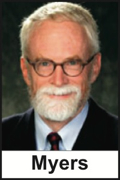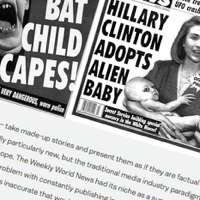Rascals case in brief
In the beginning, in 1989, more than 90 children at the Little Rascals Day Care Center in Edenton, North Carolina, accused a total of 20 adults with 429 instances of sexual abuse over a three-year period. It may have all begun with one parent’s complaint about punishment given her child.
Among the alleged perpetrators: the sheriff and mayor. But prosecutors would charge only Robin Byrum, Darlene Harris, Elizabeth “Betsy” Kelly, Robert “Bob” Kelly, Willard Scott Privott, Shelley Stone and Dawn Wilson – the Edenton 7.
Along with sodomy and beatings, allegations included a baby killed with a handgun, a child being hung upside down from a tree and being set on fire and countless other fantastic incidents involving spaceships, hot air balloons, pirate ships and trained sharks.
By the time prosecutors dropped the last charges in 1997, Little Rascals had become North Carolina’s longest and most costly criminal trial. Prosecutors kept defendants jailed in hopes at least one would turn against their supposed co-conspirators. Remarkably, none did. Another shameful record: Five defendants had to wait longer to face their accusers in court than anyone else in North Carolina history.
Between 1991 and 1997, Ofra Bikel produced three extraordinary episodes on the Little Rascals case for the PBS series “Frontline.” Although “Innocence Lost” did not deter prosecutors, it exposed their tactics and fostered nationwide skepticism and dismay.
With each passing year, the absurdity of the Little Rascals charges has become more obvious. But no admission of error has ever come from prosecutors, police, interviewers or parents. This site is devoted to the issues raised by this case.
On Facebook
Click for earlier Facebook posts archived on this site
Click to go to
Today’s random selection from the Little Rascals Day Care archives….
Click for earlier Facebook posts archived on this site
Click to go to
Today’s random selection from the Little Rascals Day Care archives….
Children ‘got mixed up’? Believe them anyway
June 18, 2012
“Yes, prosecutors blundered terribly by piling on charges and piling on defendants, just because they could.
“Yes, some of the parents became hysterical and acted out of guilt. That’s the way people act when told their children have been sexually abused – by someone to whom they entrusted them, to whom they personally delivered them every day.
“And here’s another thing the experts are right about. The children weren’t perfect witnesses. They got mixed up. They talked about spaceships and houses that walked.
“But that’s what it means to be a child, and what makes children prey to pedophiles. Children don’t know how to defend themselves. They’re easy to scare and apt to do what adults tell them to do.
“There is plenty to learn from the tragic mistakes in the Little Rascals case. But the final tragedy would be to conclude that child sex abuse is some sort of figment of our social imagination, and not the very real predator it is.”
– From a column by Lorraine Ahearn in the Greensboro News & Record (June 1, 1997)
As previously mentioned, journalists were among those who just couldn’t believe nothing happened at Little Rascals.
Ms. Ahearn, who covered part of Bob Kelly’s trial before becoming a columnist, has changed her line of work since 1997 – has she also changed her mind about ritual sex abuse at day cares? Apparently not:
“I am no longer a working journalist, and I am not interested in weighing in.
“You may glean whatever you wish from the (column). I did cover the trial as a reporter and that was what my column was based upon, not second-hand views about unrelated cases.”
I’d be the last to disparage shoe-leather reporting, but it’s those “second-hand views about unrelated cases” – from journalists such as Debbie Nathan and social scientists such as Stephen Ceci and Maggie Bruck – that enable us to comprehend the incomprehensible.
● ● ●
Do I ever tire of asking the Lorraine Ahearns, the David Finkelhors, the Kathleen Coulborn Fallers, the H.W. Williamses, the Elisabeth Porter-Hurds and the Michele L. Zimmermans, “Have you changed your mind?”
Well, yes, I do. But do they ever tire of insisting they haven’t?
Prosecutors learned wrong lesson from McMartin
March 28, 2012
Had North Carolina prosecutors been interested in anything other than racking up convictions, they would’ve given earnest consideration to analyses such as this one in the Los Angeles Times in 1990, barely a week after a jury returned not guilty verdicts in the McMartin Pre-School case:
“Experts across the country say the interview techniques intended to extract the truth from youngsters who attended the Manhattan Beach nursery school were so misguided as to make the children seem coerced, rehearsed and ultimately unbelievable to the jury….
“According to both child development and criminal defense experts who have closely monitored the case for the last six years, some of the adults — the parents, the prosecutors, the therapists — who tried hardest to find out what happened in the first place may have done the most to confuse the case in the end…. Most of the children were never given the chance to simply tell what, if anything, happened to them.
“‘They were never given the opportunity to tell their stories as they knew them, in their own words, until long after their minds had been contaminated with the thoughts and fears of the adults around them,’ said David Raskin, a psychologist at the University of Utah who has been studying child abuse cases for the last 15 years. By then, he said, it was too late.”
Contamination proved every bit as rampant among child-witnesses in the Little Rascals case, but prosecutors had learned from McMartin to conceal it by denying access to verbatim records of therapists’ interviews.
Professor yet to decide about McMartin case
 June 28, 2013
June 28, 2013
“Children can lie, but research shows that they do not fabricate detailed descriptions of adult sexual acts unless they have experienced or witnessed them. Studies also show that children have good memories and that even preschoolers can remember key events like sexual abuse. One problem is that repeatedly molested children have great difficulty distinguishing one act of abuse from another and linking abuse to specific dates….
“In the McMartin case, we learned… to minimize the use of leading questions during interviews…. While the verdict comes as a disappointment to the children in the case, their courage and willingness to testify for weeks on end has been a catalyst for change that will protect countless other children.”
– From Believe the Children adviser Civia Tamarkin’s interview with John E. B. Myers, professor at McGeorge School of Law, University of the Pacific, in “The McMartin Nightmare” (People magazine, Feb. 5, 1990)
As his faculty bio notes, Professor Myers has long been “one of the country’s foremost authorities on child abuse,” especially in tracing its historical context, but he seems to have been excruciatingly slow to recognize the fraudulence of “satanic ritual abuse” claims. Although he stopped short of declaring the McMartins guilty, Myers clearly stationed himself in the “child saver” camp, more sympathetic toward serial interviewer Kee MacFarlane than toward the defendants whose lives she devastated.
In a journal article five years later, Myers would acknowledge “growing skepticism regarding children’s credibility,” at the same time warning of a “real danger that the pendulum will swing too far in the direction of disbelief.”
More recently, Myers addressed McMartin in “Child Protection in America: Past, Present, and Future” (2006), crediting it with raising the standard for interviewing, but concluding that “In the final analysis, we will never know what happened at the McMartin Preschool. From the outset, the case divided people into ‘true believers’ and skeptics….”
In “The Backlash: Child Protection Under Fire” (1994) Myers had added a most curious footnote: “I have no opinion regarding the guilt or innocence of any of the McMartin defendants.” How could he – a law professor! – acknowledge the corruption of the child-witnesses’ testimony, yet doubt the defendants deserved a “not guilty” verdict?
Almost 20 years later, I wondered whether Myers might have formed an opinion.
His emailed response: “No idea about guilt or innocence.”
Fake news and ‘satanic ritual abuse’: Best friends forever!

vox.com
Covers from the Weekly World News.
Dec. 15, 2016
You probably haven’t been asking Google to provide you with daily news alerts about “satanic ritual abuse,” but if you had , the popularity of fake news would come as no surprise.
Decades of debunking may have squelched the wrongful prosecutions of day-care providers, but beneath the surface… well, these headlines sprang from just one day’s news feed:
-
Ritual Abuse is Real: Cover-up of Child Sexual and Ritual Abuse
-
Cover-up of the Century: Satanic Ritual Abuse and World Conspiracy
-
Ritual Abuse: What It Is, Why It Happens, And How To Help
-
Breaking the Circle of Satanic Ritual Abuse
-
Child Trafficking/Illuminati-Freemason Ritual Abuse
![]()











0 CommentsComment on Facebook